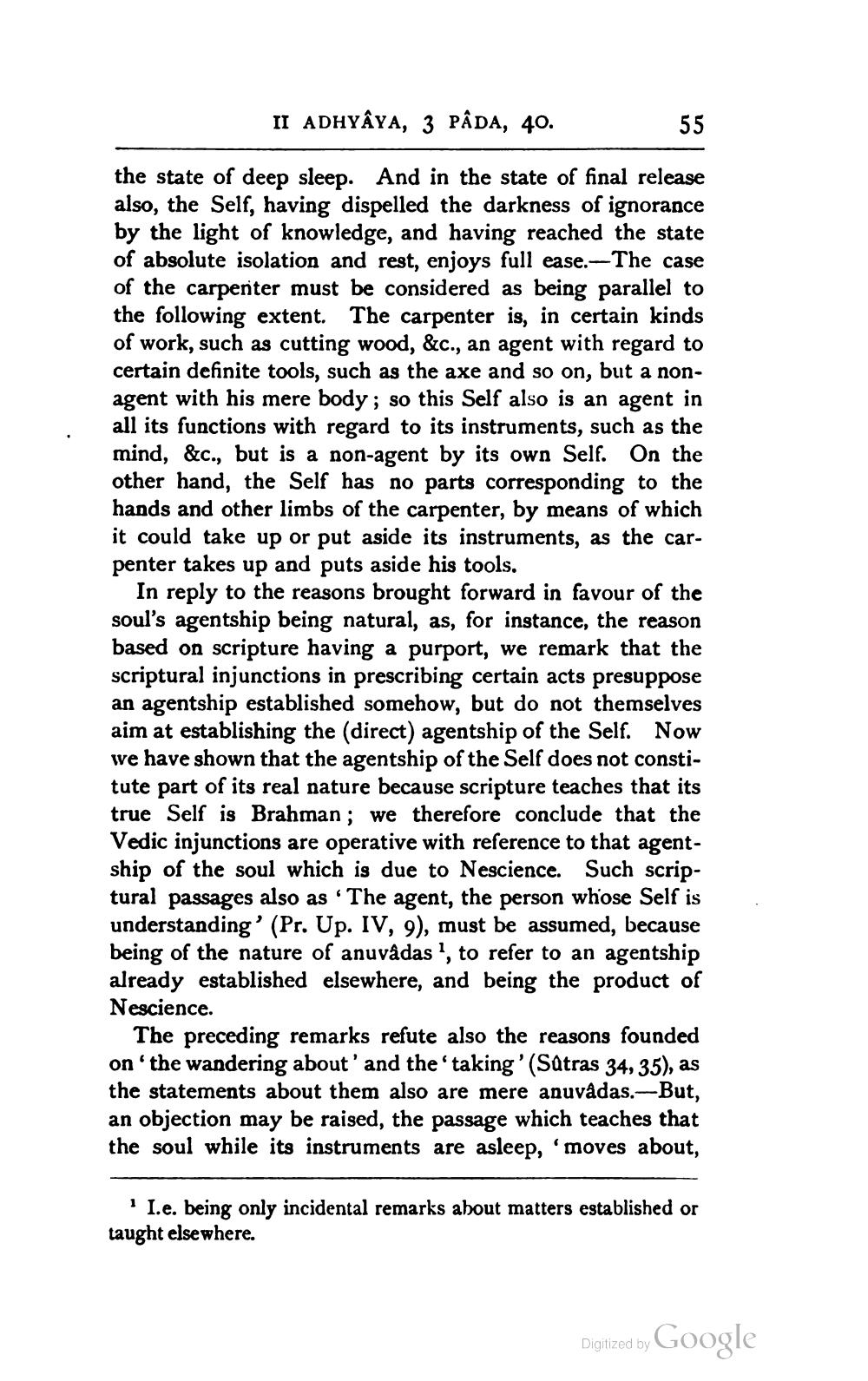________________
II ADHYAYA, 3 PÂDA, 40.
55
the state of deep sleep. And in the state of final release also, the Self, having dispelled the darkness of ignorance by the light of knowledge, and having reached the state of absolute isolation and rest, enjoys full ease. The case of the carpenter must be considered as being parallel to the following extent. The carpenter is, in certain kinds of work, such as cutting wood, &c., an agent with regard to certain definite tools, such as the axe and so on, but a nonagent with his mere body; so this Self also is an agent in all its functions with regard to its instruments, such as the mind, &c., but is a non-agent by its own Self. On the other hand, the Self has no parts corresponding to the hands and other limbs of the carpenter, by means of which it could take up or put aside its instruments, as the carpenter takes up and puts aside his tools.
In reply to the reasons brought forward in favour of the soul's agentship being natural, as, for instance, the reason based on scripture having a purport, we remark that the scriptural injunctions in prescribing certain acts presuppose an agentship established somehow, but do not themselves aim at establishing the direct) agentship of the Self. Now we have shown that the agentship of the Self does not constitute part of its real nature because scripture teaches that its true Self is Brahman; we therefore conclude that the Vedic injunctions are operative with reference to that agentship of the soul which is due to Nescience. Such scriptural passages also as 'The agent, the person whose Self is understanding' (Pr. Up. IV, 9), must be assumed, because being of the nature of anuvadas , to refer to an agentship already established elsewhere, and being the product of Nescience.
The preceding remarks refute also the reasons founded on the wandering about' and the 'taking '(Satras 34, 35), as the statements about them also are mere anuvadas.-But, an objection may be raised, the passage which teaches that the soul while its instruments are asleep, 'moves about,
· I.e. being only incidental remarks about matters established or taught elsewhere.
Digitized by
Digilzed by Google




